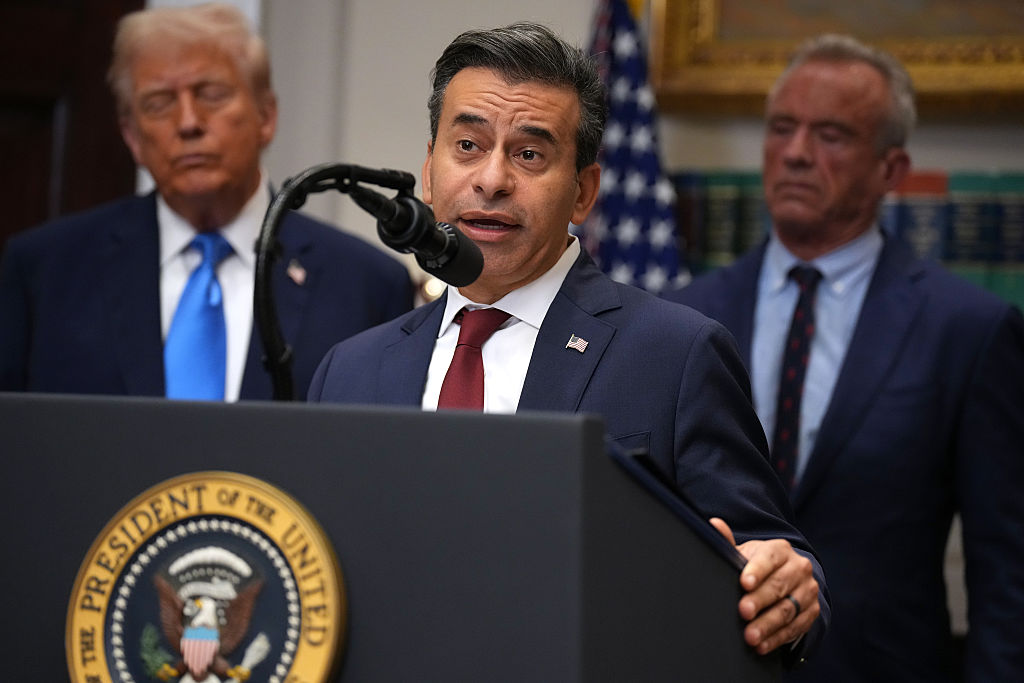Gottlieb says coronavirus restrictions should remain in place ahead of "difficult" April
Washington — Dr. Scott Gottlieb, the former commissioner of the Food and Drug Administration, cautioned against any easing of restrictions in the coming weeks as the nation continues to battle the coronavirus pandemic, instead saying those restrictions should stay in place as the country heads into a "difficult" April.
"It's too early to lift these measures," Gottlieb said Sunday on "Face the Nation." "It's going to be a difficult April. We're going to get through this. April is going to be a hard month. Come May, we'll be coming out of this, we'll be able to contemplate starting to lift some of these measures as we see the epidemic curve come down."
The number of confirmed cases in the U.S. has continued to grow, topping 124,000, according to Johns Hopkins University, and more than 2,100 have died from the illness caused by the virus. Gottlieb predicted that nationwide the country is "definitely going to have hundreds of thousands of cases."
"We might get into the millions," he added.
To stop the spread of the coronavirus, the Centers for Disease Control and Prevention has urged Americans to follow social distancing measures, and more than half of states have issued stay-at-home orders for their residents and ordered nonessential businesses to close.
The restrictions have effectively brought the U.S. economy to a halt, though Congress passed and President Trump signed a $2 trillion stimulus package last week designed to help hurting American workers and businesses.
Mr. Trump, meanwhile, has suggested he wants the economy to reopen as early as Easter Sunday, April 12, though experts warn that rushing to lift restrictions could lead to more deaths and hurt the economy further.
Gottlieb, who has been in contact with the White House and unveiled a new report with his recommendations on Sunday, said that any loosening of restrictions should wait "until you see sustained reduction in the number of cases for 14 days."
"You need to do it very gradually. You need to substitute in other things," he said. "There's others conditions that need to be met. You need to have the ability to test the population widely so you can determine who has the infection, who doesn't and use case-based interventions. We isolate individual people. You also want good information about where the virus is spreading. You need to be testing very widely to know where the virus is spreading. Those tools need to be in place."
Gottlieb said he believes that by the end of the week, the U.S. will have the capacity to screen up roughly 750,000 people weekly, and as many as 1 million people by the following week.
But a limitation is the accessibility of the components of testing kits, such as swabs or the plastic parts used to run the tests, he said.
"The manufacturing supply chain for those components is very limited right now," Gottlieb said.
The clock on the White House's 15-day coronavirus guidelines is set to expire this week, and Gottlieb predicts the Trump administration will either extend the measures already in place — working from home, canceling gatherings of more than 10 people and limiting travel — or recommend governors extend their own restrictions for several more weeks.
"This isn't going to be a simultaneous reduction across the country," he said. "New York is going to come down before the rest of the country does, and it may appear that the overall number of cases around the nation are coming down because New York represents such a big part of that, but in fact New York could be coming down and other parts of the country going up."
While New York currently is the epicenter of the coronavirus outbreak in the U.S. with more than 53,000 cases, other cities from coast-to-coast are seeing an explosion in the number of cases, including Chicago, New Orleans and Miami.
"This looks like a national epidemic right now, and I think a lot of those cities are going to be in a situation similar to what New York is in right now," he said, adding that a challenge for the country is the capacity to "sustain and support multiple cities simultaneously as they go into an epidemic."



